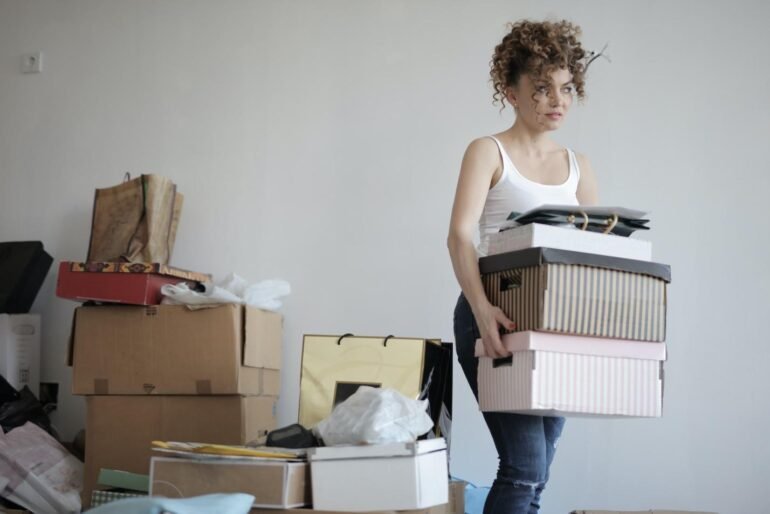Decluttering your home is a big job. Maneuvering through some parts of your home can be time-consuming and uncomfortable, coupled with unhygienic conditions, which might result in some ailments.
Whether you are downsizing or simplifying your life, the best way to approach decluttering is to do it in stages to ensure that you are not overwhelmed at the end of it all. But before you go into defining these stages, ensure you have containers for each of the following:
Put away items that crept out of their storage spaces, things that need fixing before they can be put away, items that can be recycled, items to throw away, and unwanted items in good condition to be donated to charity or other people. Below you’ll find a breakdown of some simple ways to declutter your home.
Give One Item Away Each Day
If you struggle with where to start in your decluttering journey, give an item per day. If it is your first time decluttering, start by sparing 5 minutes a day to put together things you need to give away and build momentum as time goes on.
Giving away one item per day means you would have removed 365 items from your home in a year. And if you increased the number to two, you would have gotten rid of 730 items in a year.
Some items to give away may include clothes you have not worn in six months, shoes that no longer fit, purses that you haven’t used in a while, kitchenware, kids’ stuff, and more. Donating items helps get rid of things quickly, unlike selling.
When sorting out clothes, you haven’t worn for a while, hand all your clothes with hangers in the reverse direction. Once you wear a piece of cloth, face the hanger in the right direction and closely monitor clothes you would not have touched in months.
However, if you have a few items, create a decluttering timeline to allow you to get rid of things within the shortest time possible. You can give yourself 30 days to get rid of what you don’t want or schedule decluttering just for weekends. Keep your decluttering goals realistic to complete the process without overwhelming yourself. Be kind to yourself if things don’t go as planned, and resume the operation once your mind is settled.
Take the 12-12-12 Challenge
The 12-12-12 rule dictates that you have 12 things to donate, 12 to throw away, and 12 to be returned to their proper places at home. Start by getting rid of the garbage and separate items that can be recycled. When removing home clear-out waste, you might want to hire a dumpster for those items you know can’t be recycled or donated. It will make the process cleaner.
Place all donation items in your car trunk, but first, have a plan on when and how to drop them off. If you place them in a waiting zone, don’t let them stay there longer. If you have items you plan to sell, put them in a waiting zone but have a deadline on when you’ll have them listed.
For instance, a great time to replace long-term items like mattresses, living room furniture or decor is during a move. If you’re thinking about taking the chance of replacing your mattress, ensure that you have proper mattress dimensions for the new space and replacement.
Along with a plan for any old items that haven’t been sold at the end of the day, make a plan on how to donate them and operate following a specific timeline. As you put aside items, ensure that they have designated homes, lest you end up with clutter again.
Stay on course throughout decluttering and avoid distractions such as cleaning or organizing rooms. If the entire process overwhelms you, get some help. Make it a team effort and watch it happen faster. Recruit friends or family members and assign them specific tasks. If you are working with a budget, hire a professional organizer to simplify the process.
The Benefits of Declutter
Owning a few possessions comes with benefits. Having fewer items in your home means having fewer items to clean. Cleaning things you don’t have an emotional attachment to can be stressful. So why not get rid of such items?
Decluttering also means fewer items to organize. It makes finding things more straightforward and allows you to move around your house quickly. Decluttering also means having fewer debts. Imagine spending time shopping for possessions only for them to end up in clutter. The less clutter, the more you save.
Less debt also means more financial freedom. With most US households living paycheck to paycheck, decluttering, when paired up with minimalism, can help you build up savings to protect you in emergencies.



